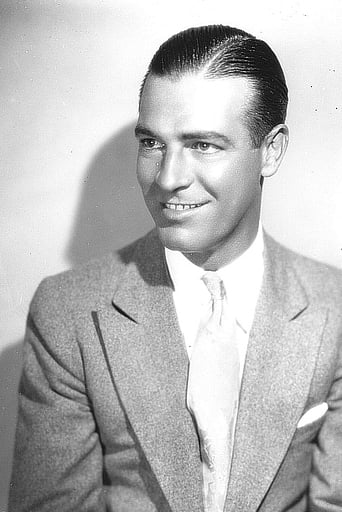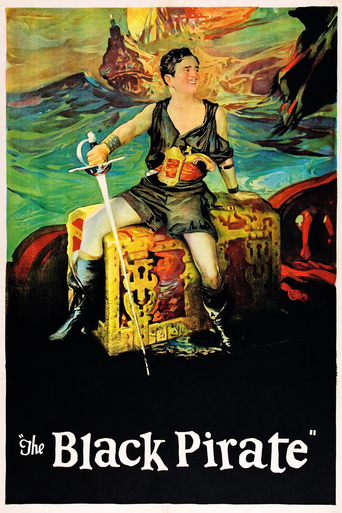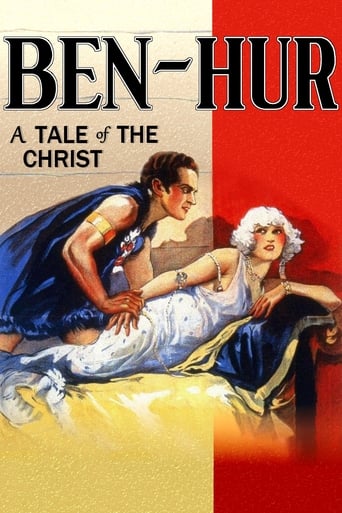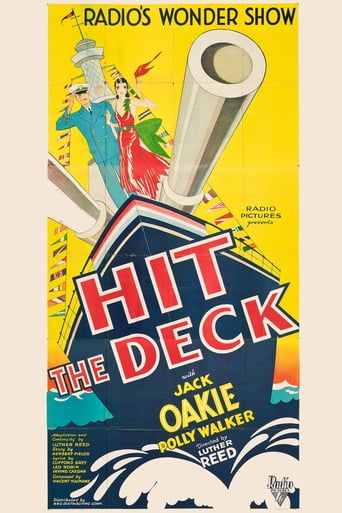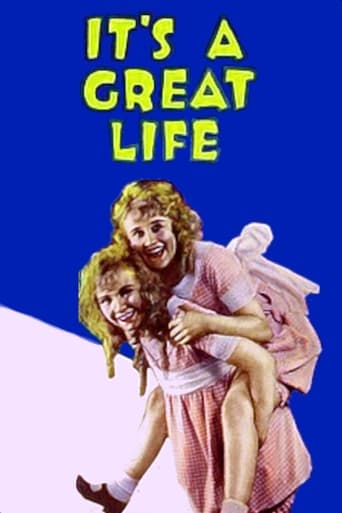
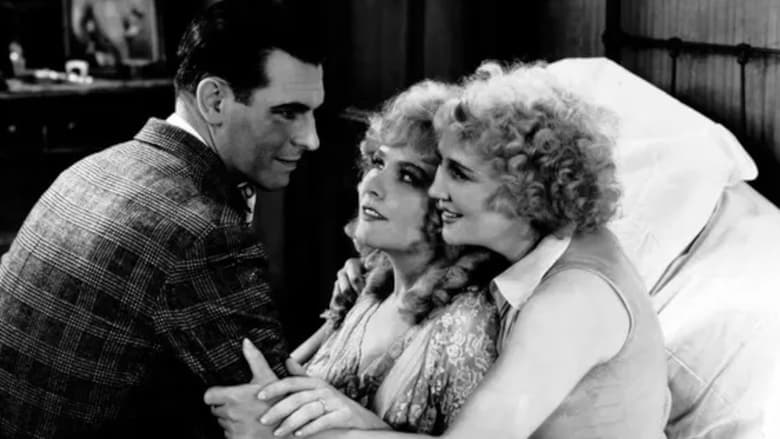
It's a Great Life (1929)
Casey and Babe are sisters who work in a department store and each year the store puts on a show. As expected, things are going wrong with every act until Casey comes out to help Babe with her song. They are a hit, but in the final act, Casey again comes out and this time the president sees her act and fires both her and Babe on the spot. Benny is able to book Casey, Babe and Dean into Vaudeville and their act is popular. But before they have their shot at stardom, Dean and Babe leave Casey and the act.
Watch Trailer
Cast


Similar titles
Reviews
Rosetta Duncan has to be one of the most annoying actresses I have ever seen. Jed Prouty deserves an academy award for pretending to be in love with this *blank* .... must have been the most difficult acting job in his career. At one point, during the first Technicolor sequence, Lawrence Gray almost kicks Rosetta Duncan....and you can't help wishing he had and right off the stage at that. Rosetta Duncan is about as funny as a room full of cockroaches. The film would have been improved greatly if she had been entirely removed from the cast.Lawrence Gray has a pleasing voice and it is a shame he doesn't get to sing more.. and he is really the only reason I don't give this picture a 1. His rendition of "Following You" and "I'm Sailing on a Sunbeam" (the second in Technicolor) are the highlights of the picture. Vivian Duncan has a pleasant voice, but she is unfortunately drown out by her annoying sister's croaks. Benny Rubin is pretty much wasted in his tiny part.
I love old movies and have a very high tolerance for old fashioned style films, but "It's a Great Life" was very, very hard for me to watch. When seen today, you wonder how the Duncan Sisters could have been such a successful stage act, as they are, at times, godawful and hard to take.When the story begins, Casey and Babe (Rosetta and Vivian Duncan) are working at a department store and hate the job. Once thing they like, however, is the upcoming store talent show. Unfortunately, the acts bomb one after another and it culminates with Babe performing a terrible song. To try to save it, Casey goes on stage and tries to inject some laughs into the act...and it is a hit. Soon the sisters plan on doing a vaudeville version of this act but this plan is scuttled when Babe gets married...and Casey absolutely hates her new husband, Jimmy. So Babe and Jimmy try their hand at performing...and fall flat on their faces. Casey does better but longs to get back with her sister....but her hatred of Jimmy stops any chance of reunification. What's to come of this?The main problem with this film is that the singing is just horrid...so bad that it's painful to watch. Some of the acting isn't especially good either (the end with Casey and Babe is just horrible) but frankly these non-singing portions are the highlights! Overall, a curio...just not a very good one. And, frankly, I cannot understand the reviews giving it scores of 8-10. This is NOT another "Broadway Melody" and is best seen for it's historical importance and NOT its entertainment value...which is nil. Incidentally, if you subject yourself to this one (DON'T!), you'll get to see a couple two-color Technicolor sequences.
IT'S A GREAT LIFE (Metro-Goldwyn-Mayer, 1929) directed by Sam Wood, is another one of those "Broadway Melody" variations produced during the early sound era, with the plot revolving around the up and down stage career of two singing sisters and a songwriter, in this instance, piano playing composer. What makes this one more natural to MGM's own Academy Award Best Picture winner of "The Broadway Melody" (1929), which starred Bessie Love, Anita Page and Charles King, is that this one features actual sisters in the leads. The sisters in question are The Duncan Sisters. And who are the Duncan Sisters? No, they are not the originators of the franchise of Duncan Donuts. Both blondes, they were popular vaudeville headliners with one previous feature film to their name, the silent production of TOPSY AND EVA (UA, 1927). As a result from viewing IT'S A GREAT LIFE, Rosetta (1886-1959) is best described as the shortest of the two with a flare for comedy in the manner of Winnie Lightner with a sort of raspy voice; Vivian (1899-1986), slightly taller yet prettier, sings and dances, but lacking in acting ability, especially when it comes to heavy dramatics. As with many big names during this period, the Duncan Sisters are virtually forgotten today. It's interesting to point out on how Vivian closely resembles Anita Page at one point with a cross variation to future screen actress Dorothy McGuire. Had IT'S A GREAT LIFE been distributed earlier in 1929 instead of the tail end or early 1930, it might have become an equivalent to "The Broadway Melody," considering how both films are somewhat similar in theme, which makes one wonder if the writers of "The Broadway Melody" story had the Duncan Sisters in mind. Regardless, there were no further Duncan Sisters musicals to follow, indicating that IT'S A GREAT LIFE left little or no lasting impression to 1929 audiences. By the time of its release, musicals were showing signs of decline, thus making their talking debut the final feature film for the Duncans.Synopsis in brief: Set in New York City, the story opens with a chase after two girls are seen running from their apartment building, down the street, and immediately being pursued by a policeman and some passersby, causing some traffic accidents as the girls cross through heavy traffic, ending with them heading into a department store where it is soon revealed that they are late for work. The plot development introduces the Hogan sisters, Casey (Rosetta) as the wisecracking elder sister to Babe (Rosetta). Babe loves Jimmy Dean (Lawrence Gray), with whom she works in the sheet music department. For some reason, Rosetta dislikes Jimmy, which is never revealed why. She always finding fault in him and takes every opportunity to criticize him whenever possible in hope that Babe will become discouraged and forget about him. After getting fired from their jobs following the annual store show by Mr. Mandelbaum for his disapproval of Casey's clowning, the trio make a go for the big time in vaudeville. Although they become successful, things become complicated when Babe marries Jimmy, causing problems in her relationship with Casey, thus breaking up the act. While failures on their own, they all become too stubborn to make the first move and admit their faults, even when one of them becomes seriously ill with pneumonia.The musical program: "Smile, Smile, Smile" (sung by employees); "What the Debutante Must Do" (fashion show sequence in two strip Technicolor), "I'm a Son of a ---." "Lady Love" (sung by Vivian Duncan); "I'm Following You" (sung by the Duncan Sisters); "Smile, Smile, Smile," "I'm Following You," "It Must Be an Old Spanish Custom," "Rigoletto," "It Must as Well Be You," "Let a Smile Be Your Umbrella" (sung by unseen vocalist during dramatic moment); "I'm Following You" (sung by Lawrence Gray); "Dance Number" (performed by Rosetta dressed up like a little Dutch Boy); "Hoosier Hop" (production number in two-strip Technicolor with the Duncan Sisters); and "I'm Following You." With the songs being the main attraction, only "I'm Following You" is quite memorable, even after several reprises.Aside from the aforementioned leads, only Benny Rubin as Benny Friedman, the booking agent, and Jed Prouty (who played the stuttering uncle in "The Broadway Melody" ) as David Parker, the store manager who loves Casey, assume billing in the opening casting credits while others do not.The title to IT'S A GREAT LIFE has been used several times over the years: Paramount (1935) with Joe Morrison; Columbia (1943), as part of the 28 film series featuring "Blondie and the Bumsteads" with Penny Singleton and Arthur Lake, as well as the long forgotten TV comedy series starring Michael O'Shea and Frances Bavier (1953-55).The movie as a whole is really not bad. After it is all over, it'll be hard to get these lyrics, "Wherever you go, whatever you do, I want you to know, I'm following you" out of your head. IT'S A GREAT LIFE may never be categorized as a great early musical, but mostly a curiosity for fans of movies from this particular era as well as a rediscovery look into the careers of the once popular Duncan Sisters. Only the final minutes, highlighted by a Technicolor production number choreographed by Sammy Lee, comes off a bit weak. Once shown on a frequent level on Turner Classic Movies cable channel prior to 1996, it's become more of a rarity today. (** Duncans)
A sister act finds IT'S A GREAT LIFE in show business as long as they can stick together.MGM crafted this confection as a showcase for the talents of the Duncan Sisters, of Vaudeville & Broadway fame, and as such it's an interesting relic of its era. The sound quality is remarkably good, considering its age, one of the songs is quite good, and the antique color, which highlights a couple of stage sequences, is very pleasing to the eye. As a vehicle for screen stardom, however, the film proved a disappointment. The Sisters' movie career was over almost before if could get started.Rosetta (1900-1959) and Vivian (1902-1986) do quite well as siblings who rise from performing in retail follies to the Vaudeville stage. Vivian, the pretty one, gets most of the film's few romantic moments, but Rosetta, who was an true clown able to do hilarious things with her face & body, steals the picture. When allowed to be silly she is enormous fun to watch. The script, unfortunately, keeps her character in a bad temper for much of the time, eventually wearying the viewer with her interminable fuming. She's so much more enjoyable when in a jolly mood, especially when teamed with sister Vivian. Their lovely duet, "I'm Following You," is a genuine heartwarmer.Lawrence Gray, who had made a name for himself in comic Silent film roles, makes the most of his somewhat thankless part as the piano player who captures Vivian's heart. Jed Prouty, as the department store manager who quietly loves Rosetta, and Benny Rubin, playing a Vaudeville booking agent, both do well with their small roles.The opening scene, with the Sisters madly dashing down the street to work, hotly pursued by a cop and a mob of excited New Yorkers, is one of the movie's best and gets the proceedings off to a frenzied start.




